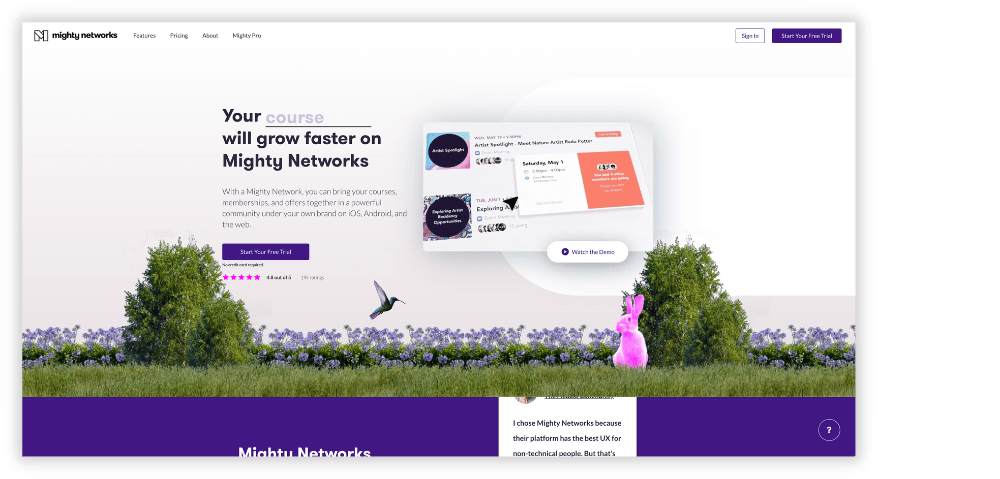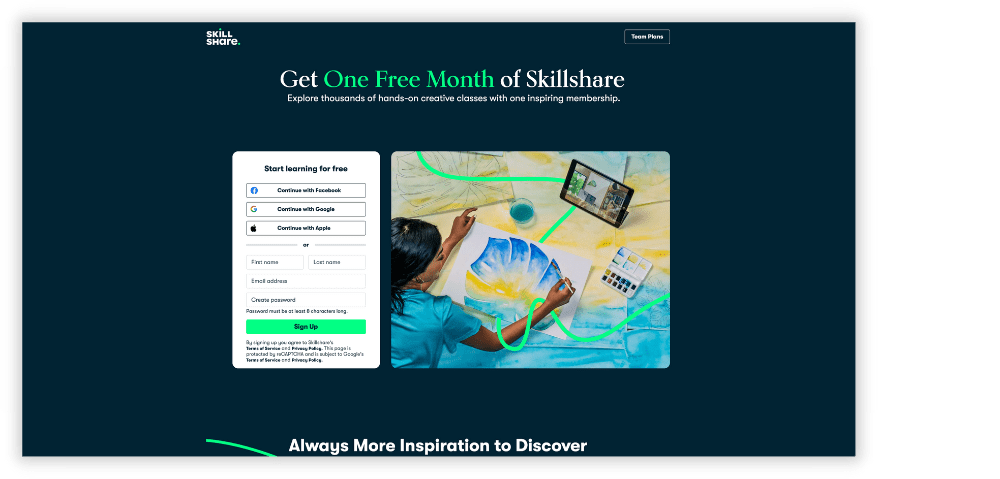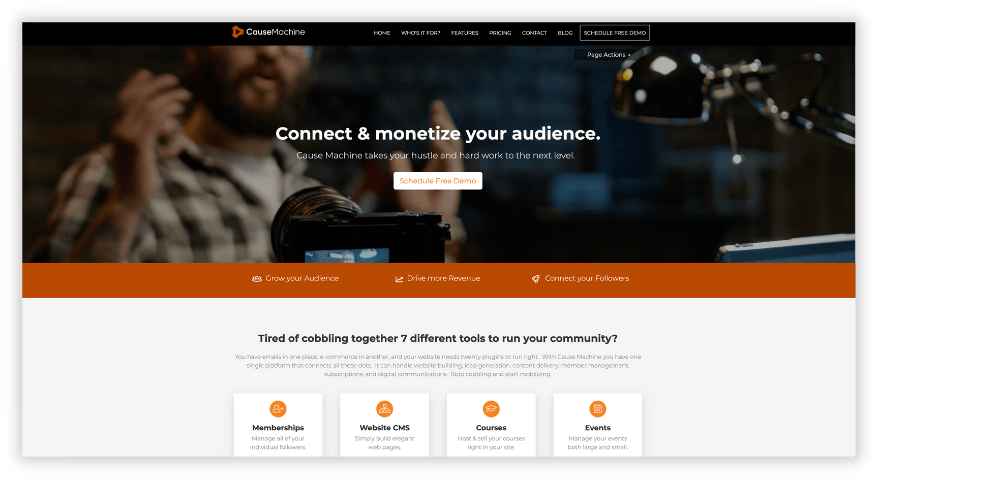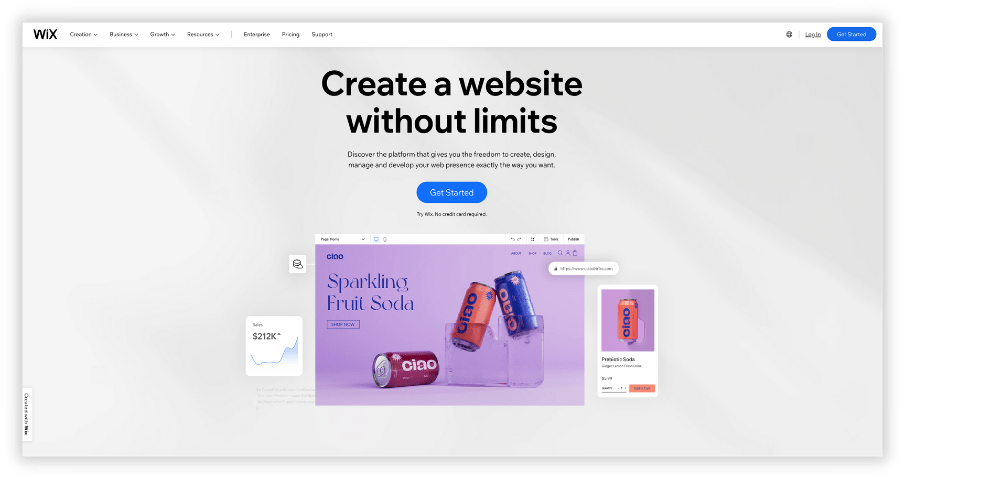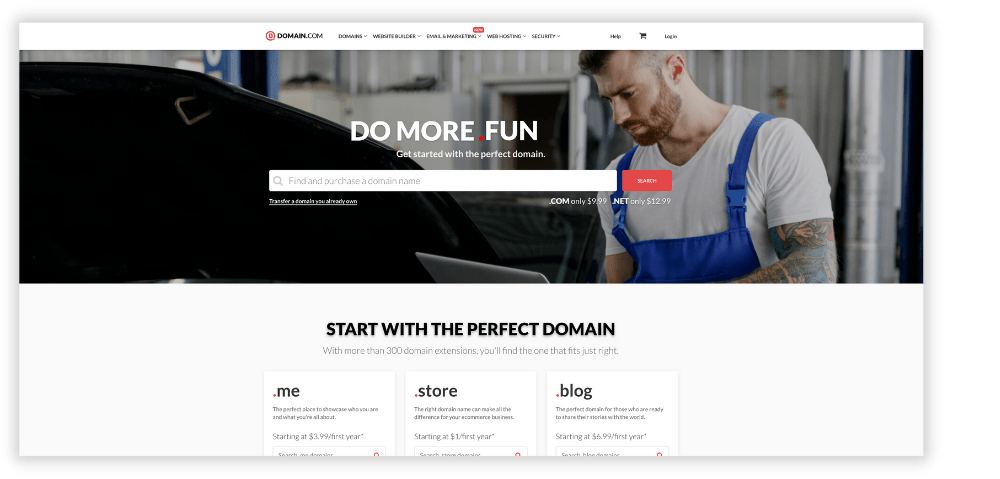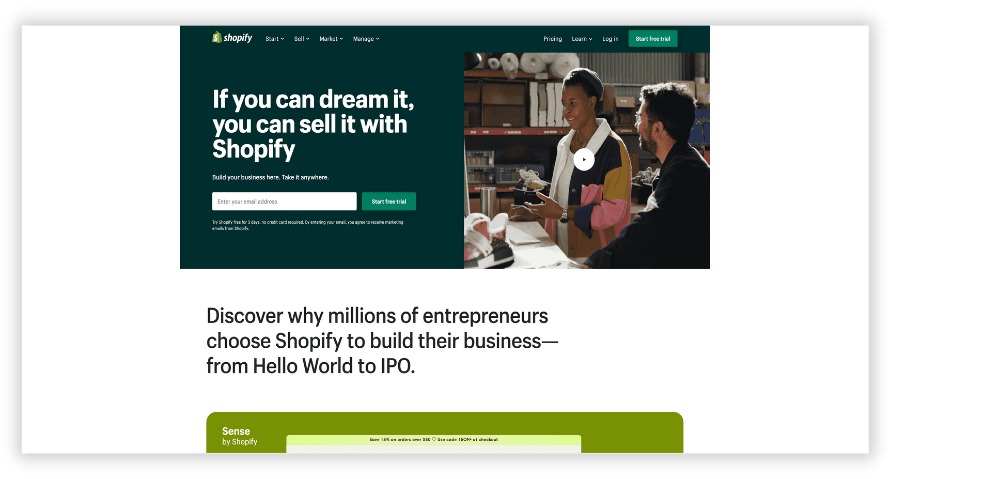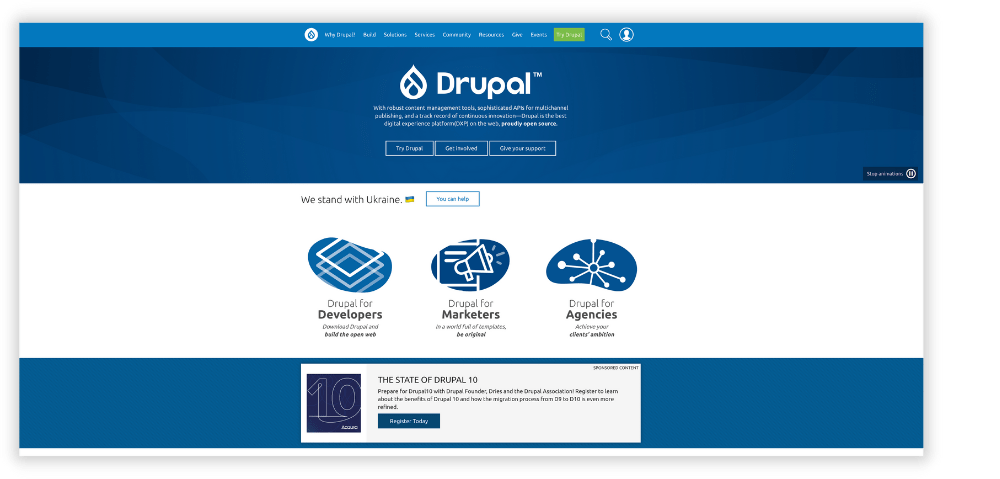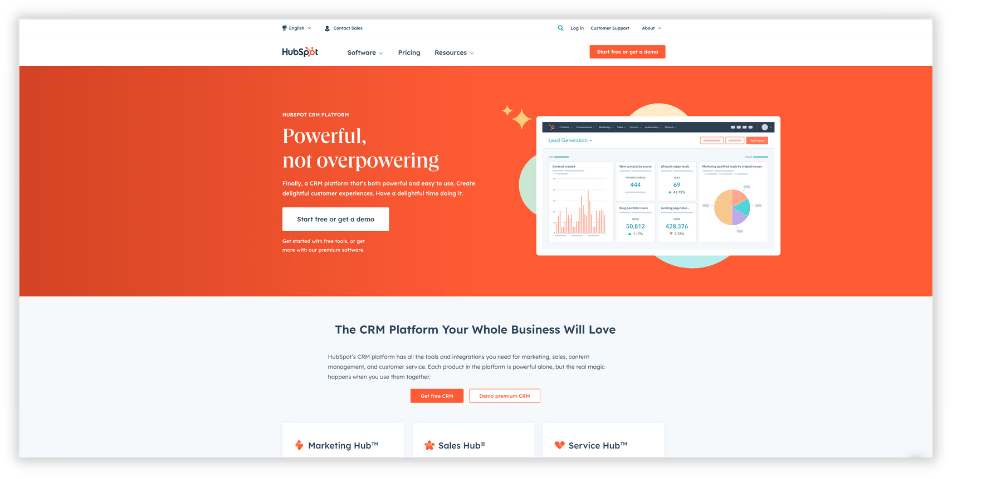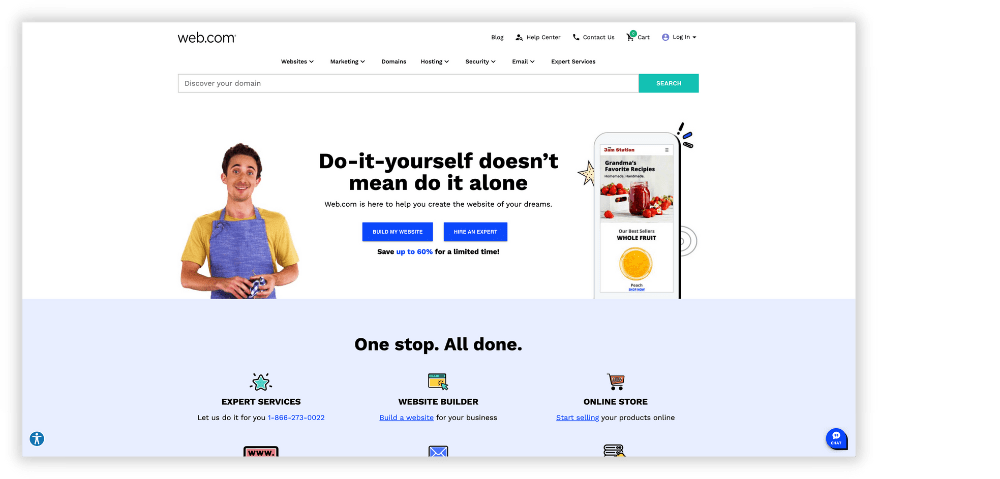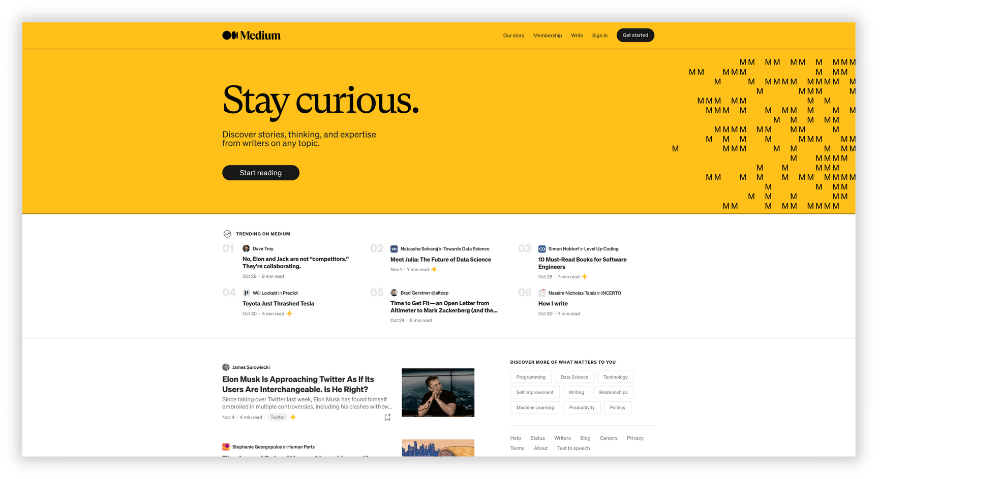What is Digital Engagement?
3 ideas if you’re looking for conservative alternatives to Facebook
 by Will Rogers
by Will Rogers

You care about your content. You care about who owns said content. And, maybe you also care about certain views about where your content lives.
Here’s the deal: if you’re looking to engage a community, and you’re concerned about social media platforms and their control over your content and information, it’s not easy to find and build an audience on a platform that isn’t called Facebook.
Have you looked? If so, you quickly found that it’s tough to connect with an audience outside of the big social channels.
Whether you're an author or leader with a community, Facebook seems to own the world and therefore, own all of your friends and followers—and your information. We all know the stories of Facebook being caught exposed for what they are doing with every little piece of your information and behavior online. I’ll try NOT to get into that here.
If all of that wasn’t enough to consider, there’s more. What if Facebook no longer supports your point of view? Could your entire site be removed? Whether you ever get off of Facebook or not, you should know there are options out there. Here’s the thing: you may, after reading this, decide to ride Facebook as long as you can. But, for you who’s reading and want to jump ship, what are your options.
Here are three (3) ideas if you're looking for conservative alternatives to Facebook:
#1 Ride Facebook.
I know, not really an "alternative" here. But, listen. As I mentioned earlier, it’s certainly one of your options to get from Facebook what you can. There is something to the fact that your friends—and yes—even your parents are there. So, when it comes to connecting and getting your message out there, it’s one of the best in a lot of ways. Maybe for an intentional amount of time and growth, you may still want to utilize Facebook.
The big strength of Facebook is the sheer number of people there. But, you must understand, you’re at the mercy of Facebook’s tools and changes. Don’t hear me say you should jump off of Facebook. But, for this who are bothered or interested in other options, or trying to monetize your blog more, let’s at least a peek at what’s out there.
#2 Use Another Tool.
Now, maybe you’re done with Facebook. Believe it or not, you can launch your community in some other social platform or build out a private community. You can try doing something similar on another social platform like YouTube or Instagram. I know, Facebook owns Instagram, so there’s that. But, point is, it may be worth it if you haven’t tried—and depending on your followers—you may be able to get what you need out of another platform entirely.
If you want to get away from Facebook entirely, consider YouTube, LinkedIn, or even Twitter. Again, it depends on your most important issue related to Facebook. But, you’re reading this post, so, you’re at least interested in checking out other options.
With the platforms I just mentioned, aside from LinkedIn, there aren’t a ton of options for groups, building community, or connecting all types of people in general. Sure, there are sites like MeWe and Parler popping up, but they aren’t yet super comparable to Facebook’s audience size. So, how can you build a community that’s also private? Great question. I have some ideas.
#3 Build a Private Community.
This isn’t as difficult as it may sound. But, it’s no cakewalk either. Yes, you would have to start from scratch. But, maybe you already know how to create content Google ranks you for. And, this would mean having to find a software tool that allows you to do have your community access. When it comes to building your private community, there are at least three things you need to get right.
First, some cautions. Building your private community takes time—a long time. You’ll need a plan and have to set several things like preferences, branding, site structure, membership plugins, and so on.
Again, most of this isn’t impossible to complete. But, you’ll need to have plenty of time to start. Then, you’ll have to re-train your audience to use a new tool instead of Facebook!
Second, the things you’ll need to do. You’ll need to start with a plan. For example, you will need to find a tool that meets your needs now and allows you to grow. You will need to find a tool that’s easy for your members to use. And, you’ll want to consider on the front end—if you need to hire someone to get it set up, help with branding, and get started may be the right decision.
Third, benefits. If you can jump all of these hurdles, there are great benefits, or trade-offs, to keep in mind. Everything from security, to access, to knowing user behavior, and so on. You’ll have almost total control of your community. You’ll have a much higher sense of security and privacy—because you’ll be the decision-maker for what you do with your content. You control the direction, message, and engagement of your community. There is power in your audience not being “sold” only what and when Facebook wants to sell them.
I don’t mind telling you, I’ve helped dozens of communities figure this out - if you want to learn more, hit us up, as I understand the deep need for having a private and secure community site. I’ve walked many others through this process. And, I happen to have created a platform, a strategy, and a team to assist.
 Need more help taking your community digital?
Need more help taking your community digital?
You want to have a dynamic and multi-dimensional community that thrives. In order to do that, you need a strategy of both online and offline engagement. This guide will help you think through your approach to engaging a virtual community. Download the free eBook: How to Take Your Community Digital.
About the author: Will Rogers is the Founder and CEO of CauseMachine. Will’s career has been spent leading organizations and helping to mobilize communities to a shared vision. He has served in various leadership roles to build community engagement and movements teaching him valuable hands-on skills and experience. Will has developed business and community engagement strategies for dozens of organizations in nearly 50 countries. He and his wife have two sons and now live in Kentucky after two decades in Colorado.
5 Best Online Course Platforms to Grow Revenue
- Community
- Content Strategy
- Guiding People
- and 1 more...

Let’s start with a hypothetical. Say you’ve got some skills in an in-demand field—mad chops, like, so good it’s almost scary! Naturally, other people want them, too, and with the right online course platform, you can create and sell your own brilliant ideas.
That’s great! Since 2020 made virtual collaboration the norm, it’s easier than ever to share your knowledge with a global community… and get paid to do it. Your timing is perfect, but after a quick scan of the options, you’ve got a question.
How do I decide on the best online course platform for me?
To be honest, there are dozens of platforms out there, all serving a different need. Some are geared more toward creatives, while others offer amazing marketing tools. Some are endlessly customizable, while others use templates to get you up and running quick. Some let you control the data in your community. Your plan to spread knowledge (and monetize your mad skills) will have to wait, at least until you figure out where to host this game-changing course.
We’ve done the digging and picked out five gems from the heap—quite possibly the best online course platforms out there today. Then we broke them down so they’re easier to choose from, and the results are in.
5 online course platform options that serve a unique purpose.
1. Teachable
Teachable is widely considered one of the best online course platforms for beginners, since it has loads options to help first timers get started. You can build out simple courses with quick, pre-set template options and tips to get the most out of the program. And you also get access to student information, making marketing that much easier. But while it’s great for startups, you might want something more once you grow.
2. LearnDash
Next up is LearnDash, a learning platform that comes with one big advantage: It works with your existing WordPress website. That’s right, if you are one of the millions of people already hosting a website on WordPress, you can plug LearnDash right in. That does streamline things, but it also comes at a cost – you’ll need a bit of technical know-how to keep it running smoothly, in comparison to some other options.
3. Mighty Networks
Maybe the key to your success is a thriving, interactive community, one where you stay in constant contact with your members. Count Mighty Networks as a possible solution. You can use your existing social media following to build a network of potential students, and with live-streaming video uploads, your content will keep them engaged. When done right, your course could feel more like a social platform than school.
4. Skillshare
But what if the course you’re hoping to teach is in a creative field? Something like comic-book writing or… quilting… advanced finger painting? If that’s the case, you might want to check out Skillshare. With simple courses based on video lessons and projects to apply those lessons, it’s especially adept in creative fields. But, if the skill you’d like to share is more technical, you may need to look elsewhere.
5. Cause Machine
Enter Cause Machine, a purpose-built, all-in-one option. While other platforms can make it hard to centralize your digital footprint, Cause Machine is set up to do just that. Your website, podcast, events manager and online courses? They can all be in the same place. Members can interact with each other and take classes as a group, creating a more personal, engaged atmosphere, and whether your class is rooted in creative whimsy or hardcore data, you’re all set. Best of all, there’s no technical expertise required, and analytics are included, so it can grow as your business does. Check out some key features below:
-
Robust Event Management & Registration
-
Sell Online Video eCourses
-
Members-Only Original Content
-
Connect With Other Subscribers
-
Take Classes Together
In short, picking the best online course platform for you is an important decision, but it doesn’t have to be a chore.
Cause Machine Solutions
Here at Cause Machine, we help organizations solve complex community engagement problems/questions. We use these disciplines of innovation ourselves in our own development process and have helped lead many organizations through their own process of innovation discovery. Leveraging the Cause Machine platform for engaging your community helps you be confident that the foundations of this platform are built on time-tested best practices of great processes like innovation and design thinking. Schedule a FREE demo today!
9 Best WordPress Alternatives for Building a Website
- Community
- Content Strategy
- Innovation
- and 4 more...

When it launched in 2003, Wordpress sparked something close to a digital revolution. Suddenly, almost anyone could make a professional-grade website packed full of high-quality content, and it now dominates the market.
Believe it or not, about 43 percent of all websites currently run on Wordpress1, making it the most popular website builder in the world. But it’s not the only option. And if you’re about to take the plunge, you should ask yourself:
What kind of WordPress alternatives are out there?
It’s true that Wordpress is a powerful tool, with things like drag-and-drop block editing, thousands of themes and countless plug-ins to choose from, but it can also get complex pretty quickly. Perhaps the plug-ins you’ve chosen are not compatible with each other… that happens. Or maybe you’re not up for the hassle of managing your own web hosting, with security and updates and all the rest.
Luckily, many WordPress alternatives exist. Some offer a simple approach, while others are extra flexible. Some emphasis e-commerce, while others are great for blogging. You just need to know what's right for you.
We’ve scoured the internet to compile a list of the 9 best WordPress alternatives for building a website, with hopes of giving you a fuller picture of the options.
1. Wix
Wix is probably the best-known Wordpress alternative, and there’s good reason for that. If you’re looking to keep things simple, Wix is great for building basic websites with a similar drag-and-drop model to Wordpress, but a more streamlined list of plug-in options to choose from.
2. Domain.com
Next up we have Domain.com, which excels in a few areas where Wordpress does not – right out of the box. While WordPress needs some customization before you can start selling goods and services, Domain.com comes ready-to-go with e-commerce capability. Good news if you need to set up shop.
3. Shopify
Then we have Shopify, and just by the name you can tell – it’s built for e-commerce. Shopify is one of the best Wordpress alternatives if you need a digital storefront, and with great-looking templates, payment option tools and 24/7 tech support, you get a professional feel without much heavy lifting.
4. Drupal
As far as rivals to Wordpress, Drupal is most popular with bigger organizations. If you’re looking to create a website with complex, one of a kind content at enterprise scale, Drupal is almost endlessly customizable, and highly adaptive. The drawback is you’ll need some technical know-how to set it up.
5. Squarespace
Squarespace is a great Wordpress alternative with a little something for everyone. Whether you’re building your first site for a new small business, or you’re a creative looking to showcase your work, it has a familiar drag-and-drop feel, and templates that often look better than the competition.
6. Hubspot
Searching for a high-tech solution? Hubspot’s CMS Hub is a powerful content management system – and its main draw is a fully-hosted platform, meaning it can handle all that pesky back-end maintenance on its own. Plus, with automated marketing tools and killer analytics, you get a lot of bang for your buck.
7. Ghost
Not all websites are intended to sell stuff – some are just there to deliver fantastic content – and if you are a writer of any kind, Ghost might be the way to go. With powerful SEO and publishing tools built right in, plus things like an RSS feed builder and full-picture editor, this is a great choice for creatives.
8. Web.com
Web.com is a good choice for Wordpress alternatives that don’t break the bank – or take over your life. Relatively inexpensive and easy, users can start by choosing from a list of templates. Or, with the added ability to make your own design, this option can also help you create a truly unique brand experience.
9. Medium
Another example in the world of Wordpress alternatives is Medium. Perfect for publishing text, you’ve probably read a column written by a celebrity on Medium in the past – even if you didn’t know it. It’s not as endlessly customizable as some of the others. But it’s clean looking if the written word is your thing.
In the end, this is still just a fraction of the website-building options out there, and it might sound like a lot to think about. Whether you just need a website or if you're looking to give your community a home, it’s a decision you can’t afford to sleepwalk into. Take the time to decide what works for you.
Get Started With Cause Machine
Starting with a community engagement strategy is the secret to building a successful platform in the long term. Cause Machine helps customers build the plan of engaging a community well and then begin mapping out the technology to help support that strategy. We’re certain that you’ll find some great resources and powerful tools in Cause Machine to better engage your community. Learn how it can work for you here.
5 Best Coaching Platform Solutions of 2023
- Community
- Guiding People
- Innovation
- and 3 more...

With the explosive growth of the personal development industry, an online coaching platform is a great way for people to add a side gig for extra income – or even start being their own boss entirely.
Almost anything can be taught, and if you have a skill, there’s probably someone who would like to learn it. The key is to find the best coaching platform.
Not convinced? Here are some hard numbers:
The global personal development market is currently worth over $41 billion and projected to hit $71.42 billion by 2030. Meanwhile, online learning represents a third of that total.
There are literally millions of courses and coaching programs people can choose from, and an existing pool of students who want to learn everything from songwriting, and money management, to sports betting or even sewing. If you’re good at it, you can probably turn it into income – with a quality coaching platform.
There are countless options that provide tools for course building, marketing, sales, scheduling, and more.
5 Best Online Coaching Platforms (Ranked from 5-1)
5. Kajabi – Spread the Word
Kajabi is a well-known brand and coaching platform that pairs course-building with great marketing tools. Even without technical know-how, you can build course modules including text and video, and then utilize a marketing funnel that “includes email campaigns, welcome flows, and landing pages.”
- Build standardized course modules
- Excellent marketing tools
- Community-building elements could be stronger
4. Thinkific – For WordPress Websites
Thinkific is another well-known brand in the online learning space, this time geared toward users who already have a WordPress website. Since WordPress powers about 40 percent of all websites, that is a lot of potential coaches. Its drag-and-drop course builder is simple for basic coaching platform functions, and it comes with some marketing and online payment options.
-
Plug a coaching service into your existing WordPress website
- Drag and drop course builder, with the ability to do more if you can code
- Doesn’t have scheduling tools
3. Satori – For One-on-One Teaching
Some skills are not well suited for one-size-fits-all coursework – things like personal development, business coaching, or even physical fitness. With a coaching platform like Satori, you can set up and support one-on-one video appointments with automated scheduling tools, invoicing, and more. It’s kind of like having an administrative assistant, but it doesn’t help you build course modules.
- Great for automated scheduling of one-on-one video calls.
- Manages invoicing and other customer payments.
- Can’t build course modules.
2. Nudge – For Keeping Students on Track
Just like some coaching is best in a one-on-one setting, sometimes the initial meeting is just a start. Nudge is designed to keep students on track as they put your teaching to use. After setting up a video call, it features a “full suite of client tracking and coaching tools” to help you give attention where it’s most needed, which is great for fields like nutrition, mindfulness, and social development.
- Schedule group or one-on-one appointments, then track student progress via the app.
- Set up monthly step challenges.
- Simple messaging to encourage interaction.
1. Cause Machine – For A Custom Fit
One coaching platform is designed for total flexibility, and that’s Cause Machine. It’s a simple-but-powerful community-building platform that can be customized to match your needs – whatever they are, from creating traditional course modules, hosting live virtual events, and spreading your cause word far and wide.
It’s not limited to one kind of website (you can even build your own, and host your coaching service there), and with Cause Machine, community is always a primary function. It can help coaches tailor their skills into a meaningful, scaleable service, maximizing reach and revenue – all with a custom design that stands apart from the templates found elsewhere.
- Fully customizable coaching platform
- Course builder with great marketing tools
- Community-building mindset, aimed at helping you make a difference
Get Started With Cause Machine
Starting with a community engagement strategy is the secret to building a successful platform in the long term. Cause Machine helps customers build the plan of engaging a community well and then begin mapping out the technology to help support that strategy. We’re certain that you’ll find some great resources and powerful tools in Cause Machine to better engage your community. Learn how it can work for you here.
8 Customer Engagement Tips to Unlock Growth
- Community
- Content Strategy
- Framework
- and 4 more...

Here’s a surprising fact – one which anyone in today’s highly competitive, globally-connected economy should know:
80% of customers believe the experience provided by a company is just as important as its products and services.
That’s an eye-opening statement. It’s no longer enough to have the item someone needs and sell it at a reasonable price. These days, people prefer businesses that make them feel good, and this often comes down to customer engagement.
Customer Engagement Revolves Around Your Brand
Customer engagement is created by the connection between a customer and a brand. It’s the relationship a customer has that keeps them coming back. In order to maximize an organization’s results, maximizing this relationship is key to sustained growth.
There are customer engagement best practices related to marketing, sales, and service, with plenty of nuance in each segment. But in a nutshell, the whole idea is to improve a customer’s experience through positive interactions.
In the old days, this was mostly done at the point of purchase. But now customer engagement also happens digitally with advertising, social media, blogs, surveys, and more. Remember, you are up against sellers on the other side of the planet, so a great experience can separate your business/non-profit from the pack.
Take a look at these two figures for more insight into why this matters:
- 86% of buyers are willing to pay more for a better customer experience.
- 95% of customers say trust in a company makes them more likely to remain loyal to that brand (OutGrow).
The truth is that engaged customers are more valuable, so customer engagement is a powerful business driver which should be a priority. But maintaining this great experience is an ongoing process. It begins long before the first purchase and continues long after.
Today we’ll present eight tips to help improve customer satisfaction and loyalty–if you’re a small business operator or a super-sized organization. Remember: Great customer engagement doesn’t happen by accident, after all.
8 Best Tips to Increase Customer Engagement
1. Know Who You Are, Know Who Your Customers Are
The best customer experiences start with a clear message. Build a strong brand voice for your organization, and strive to maintain it at all times. If you know who you are, customers will know, too. And when you feel like you know someone, it’s possible to build trust. For your customers, start with a Customer Journey map to clarify the steps customers take when engaging with your business or organization. Build your service and product to serve their realized needs.
2. Stay In Front
Once people know who you are, it’s important to stay in front of them. Make the customer life cycle as long as possible – and you can do that with follow-up on social media, online ads, blogs, great email marketing for returning customers, and much more. Figure out where your customers are, and go to them.
3. Track Preferences
In today’s hyper-connected world, it’s easier than ever to collect useful data that can help with decision-making later on. Things like Google Analytics, Facebook Analytics, or even surveys are invaluable tools for learning what customers prefer. But even so, 39% of companies don’t regularly ask for feedback!
4. Trigger Warning
Another powerful use of data is to determine the “trigger” that convinced a customer to engage with your organization or buy that product. There’s often a reason, whether it was an advertisement, a social media post, or even word of mouth. Try to identify these triggers and put them into practice when possible.
5. Be Personal
Despite the power of data, there’s still no replacement for a personal touch. Almost 40% of customer interactions will be automated through AI and machine learning by 2023. But, 49% say that after getting a more personalized experience, they have splurged on an impulse buy.
6. Be Honest
No one is perfect – and even though businesses try hard to make themselves seem that way, they aren’t either. A big part of customer engagement is owning up to mistakes and making things right, with personal communications when possible. This is often easier for a small business, so take advantage!
7. Use Everything You Know
Just like navigating the news, it’s best to never rely solely on one source of information. Be flexible in where and how you get customer engagement details, and then try hard not to cherry-pick data points that confirm what you already thought. Learn to be ok with learning.
8. Punch Above Your Weight
Finally, outstanding customer engagement will often mean your little operation seems like a much bigger one. Using a combination of data, flexibility, and a personal touch, it’s possible to make decisions like a big business – and tailor the experience like a mom-and-pop shop.
Grow Customer Engagement With Cause Machine
Starting with a community engagement strategy is the secret to building a successful platform in the long term. Cause Machine helps customers build the plan of engaging a community well and then begin mapping out the technology to help support that strategy. We’re certain that you’ll find some great resources and powerful tools in Cause Machine to better engage your customers. Learn how it can work for you here.



